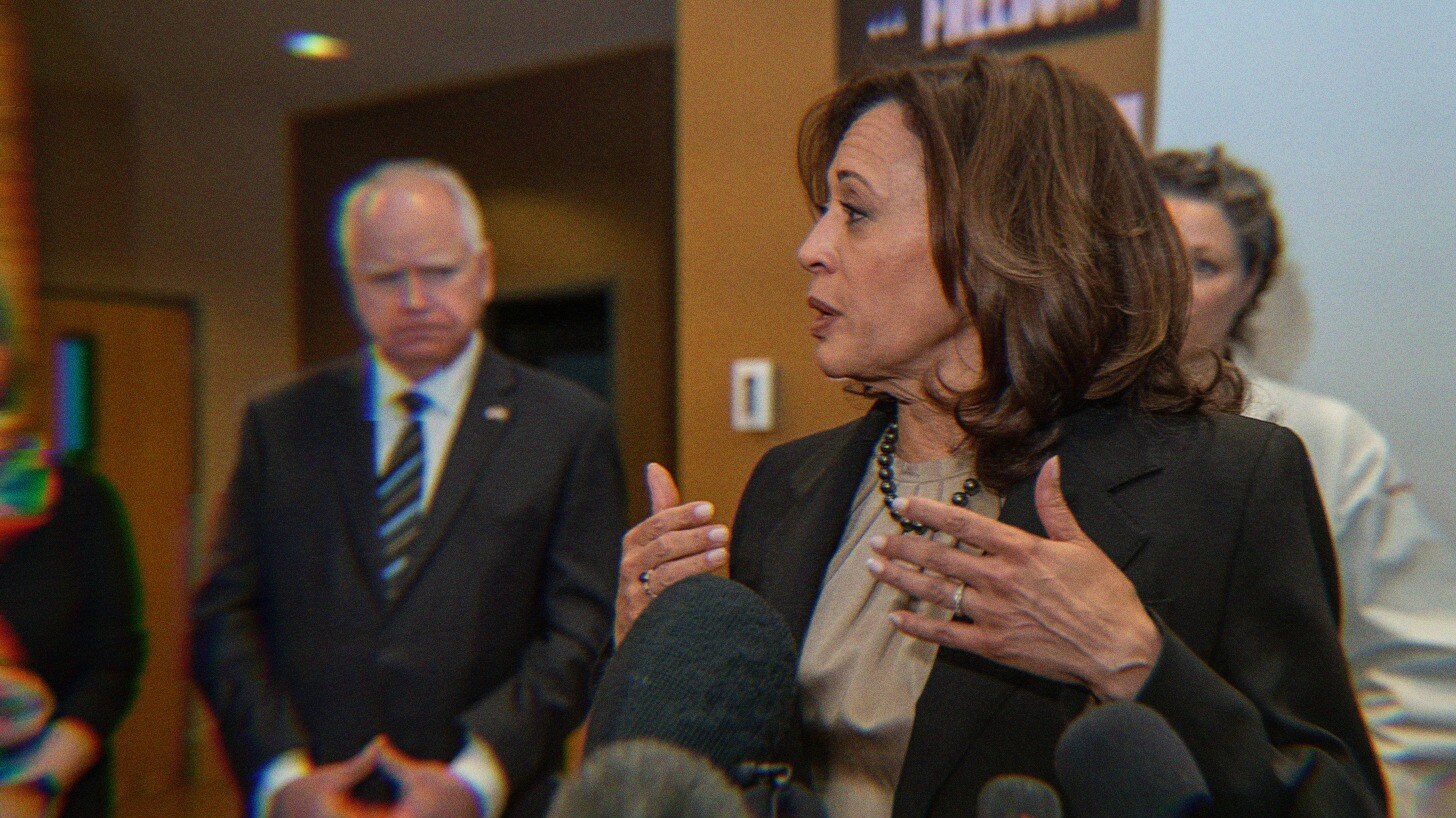Can Progressives Convince Harris To Support These Popular Policies?
 Image Description: Kamala Harris speaking at an event.
Image Description: Kamala Harris speaking at an event.
With less than 90 days until the November election, the deluge of horse-race politics coverage is about to become inescapable. That means endless pontificating from esteemed CNN and MSNBC panelists and bipartisan eye-rolls toward the left—the one thing that always seems to unite the two dominant political parties.
Many of these same people are quick to dismiss progressive policy proposals as a pipe dream. However, the truth about how amenable Americans are to such issues is actually much clearer than the establishment makes us believe. Instead of reconciling with the fact that progressive policy proposals have broad appeal, they choose to focus on the superficial.
At the same time, the drive toward the oft-celebrated “center” of American politics will shift into high gear as the donor class and their media allies ratchet up the pressure on Vice President Kamala Harris to move away from some of her boss’s more progressive policies, particularly on the economy. That Harris, for example, has yet to come out in support of FTC Chair Lina Khan’s tenure amid appeals from wealthy Democratic financiers to oust her should give us all pause.
That we know little about what Harris would do as president is similarly disconcerting—and shouldn’t be brushed away simply because no one wants Trump 2.0. In that spirit, I listened to the American Prospect David Dayen’s recent interview with Sam Seder on The Majority Report in which Dayen expressed concern about the opacity of Harris’ thoughts on many key issues, noting that we haven’t been this in the dark about a candidate in at least 80 years. Dayen rightly put Harris’ lack of clarity on the issues in the context of all the talk about “democracy.”
Harris remains a black box—or, as some have put it, she’s a political chameleon, seemingly going wherever the wind blows on any range of issues. The mystery behind her campaign is perhaps why the veepstakes effectively turned into a proxy Democratic primary, with different factions lobbying for their preferred vice presidential candidate. Minnesota Gov. Tim Walz, widely considered the most progressive option, eventually won out, exciting many on the Democratic left. But the opaque nature of the veep selection process also does us no good. According to reports, Walz’s progressive bona fides didn’t play a significant role in Harris’ decision. It seems the more likely scenario is that the affable former public school teacher appears to be more of a team player than his rivals competing in what was an expedited contest, namely Pennsylvania Gov. Josh Shapiro.
Given the questions about Harris, it’s notable that Sen. Bernie Sanders has yet to formally endorse her presidential bid, something he didn’t hesitate to do when Biden was the candidate.
It was deeply frustrating for some when Sanders and Rep. Alexandria Ocasio-Cortez so firmly supported Biden following his disastrous debate performance in July—and throughout Israel’s genocide of Palestinians for that matter. Sanders has always seemed to appreciate the relationship—if not friendship—he developed with Biden as colleagues in the U.S. Senate, which likely explains his deference toward the president. No such chemistry appears to exist with Harris, perhaps making Sanders more comfortable holding back any endorsement of the new Democratic standard bearer until Harris acquiesces to some of his policy demands.
On that note, Sanders’ political campaign recently commissioned a poll of 1,158 likely voters across key battleground states, including Arizona, Georgia, Nevada, Michigan, Pennsylvania, and Wisconsin. It’s possible—because of the horse race—that the poll’s results went under-reported. So if the calculation from the left is to accept Harris despite uncertainty around her positions, the broader movement would do well to talk incessantly about the poll results, which are generally favorable toward the progressive position.
The top-line conclusion from the poll, conducted by the left-leaning Data For Progress, is that Americans broadly support making the wealthy pay their fair share of taxes, transitioning to a “Medicare for All” single-payer healthcare system, using higher taxes from the wealthy to expand social security, implementing rent caps, reestablishing the child tax credit, and providing free public colleges and universities.
To help convey the results, we created this chart that you should definitely download and share far and wide:
According to the findings, many of these policies—often characterized as “far-left” ideas by the media—have the support of Democrats, Independents and Republicans alike.
And there’s more where that came from. According to the survey, there’s significant support for making the wealthy and large corporations pay their share of taxes (82%), building two million units of affordable housing (70%), and making public colleges and universities free (59%), among other policies.
While voters were largely comfortable expressing support for various economic issues, they bristled at the thought of cutting military spending, with 57% opposing such a measure. But as a whole, the survey demonstrates that proposals that would fundamentally improve people’s lives are welcome.
“There are not any radical ideas that nobody has ever heard of,” Sanders told Punchbowl News in an interview about the poll.
He added: “What I want to make sure—and what this all is about—is to get the point not only to the vice president but to every Democratic candidate that if you run on issues, economic issues of concern to the working class of this country [that] we have ignored for too many years, you can win this election. That’s the main thrust of this poll.”
Whether the Harris campaign ends up fighting for these issues remains to be seen. What’s clear, however, is that progressives have voters on their side despite constant demonization and fear-mongering from the media. It’s up to the progressive movement, with the support of Sanders, to remind Harris that vibes alone won’t win her the White House.
Image Source
- Office of Governor Walz & Lt. Governor Flanagan, Public domain, via Wikimedia Commons. Changes were made.
Rashed Mian is the managing editor of the award-winning News Beat podcast and co-founder of the newly launched Free The Press (FTP) Substack newsletter. Throughout his career, he has reported on a wide range of issues, with a particular focus on civil liberties, systemic injustice and U.S. hegemony. You can find Rashed on X @rashedmian and on Bluesky @rashedmian.bsky.social.


